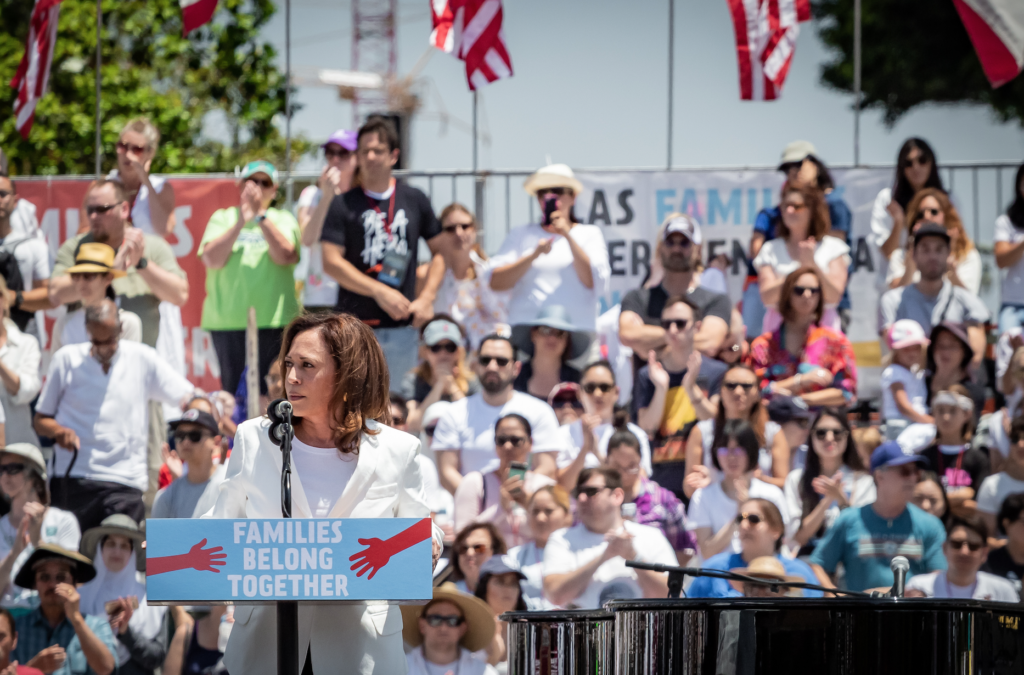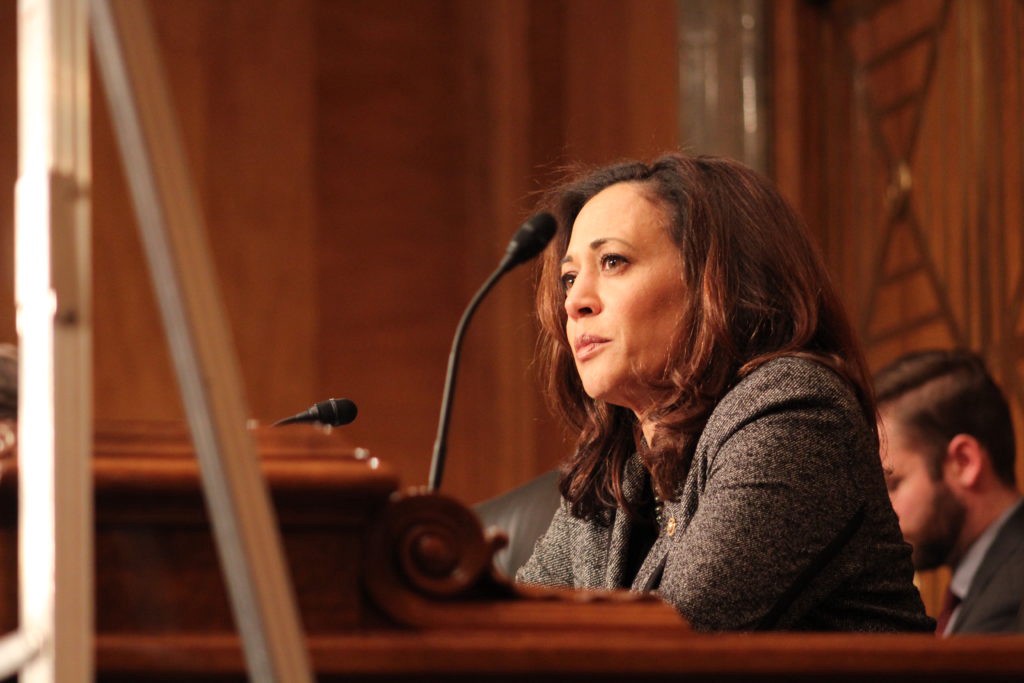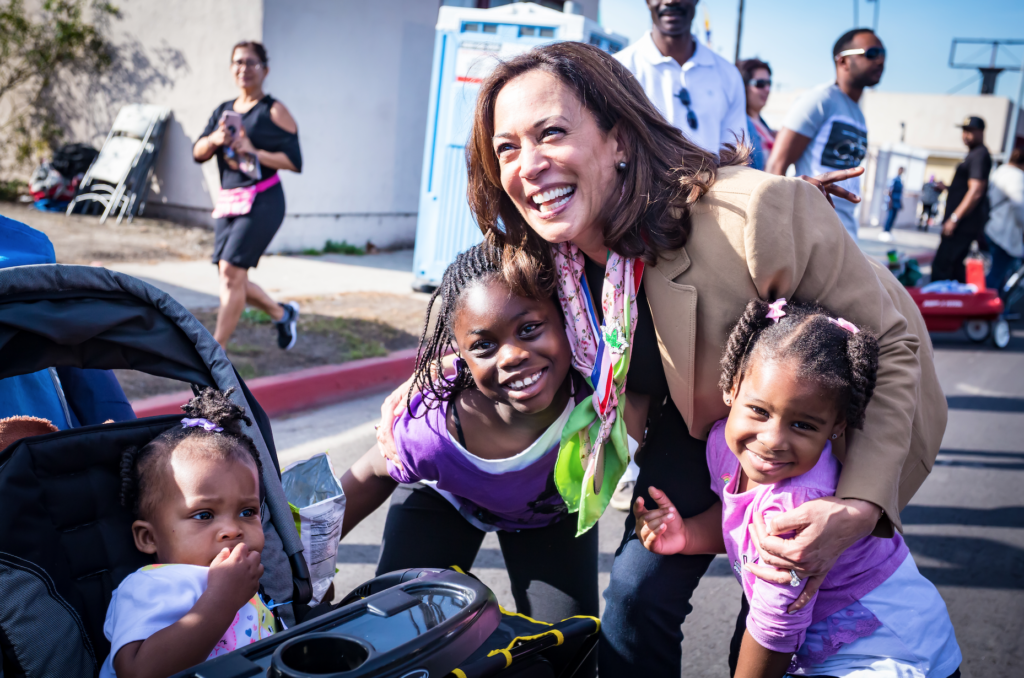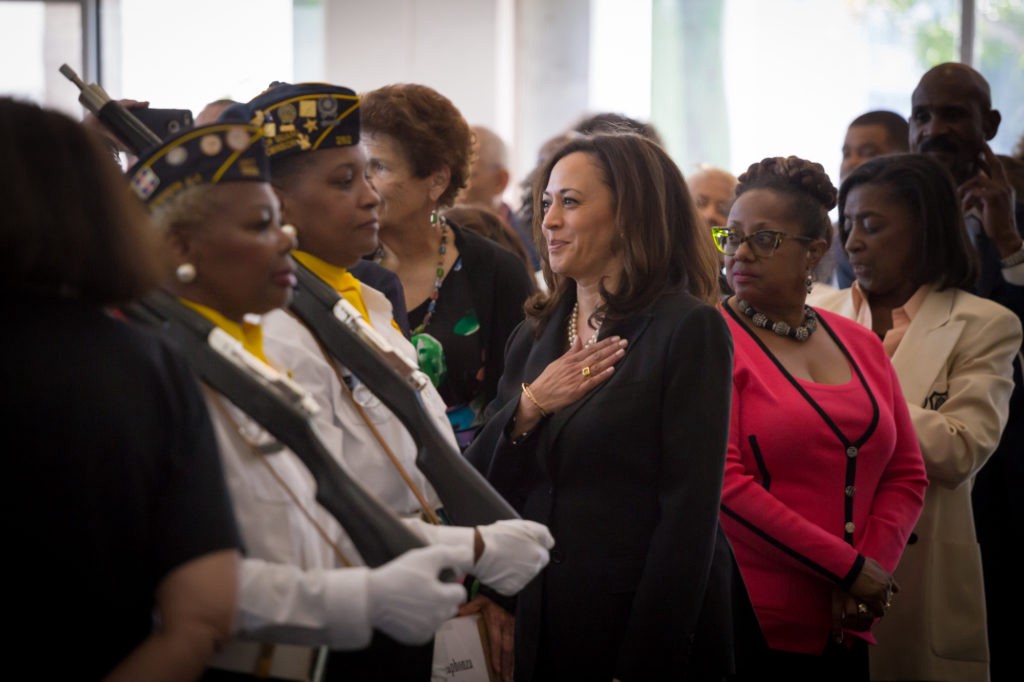Kamala Harris: America’s Veep
California Senator and former Presidential candidate Kamala Harris can check off many firsts in her dynamic career. First female Attorney General of California. First female Indian-American Senator. First female black Senator of California. And now could be the first female Vice President. The daughter of politically active immigrants, her mother from India and father from Jamaica, she was taught from an early age to break barriers.
The Vice Presidential nominee has an important 3 months ahead on the campaign trail and we hope her road leads to victory. The busy Senator took time out of her schedule to answer some questions for Imprint Culture Lab back in early 2019, giving us a bit of insight and a glimmer of hope for the future.

What in your life has given you the confidence to pursue your career in public service?
My parents met marching and shouting for justice during the civil rights movement. So growing up, there was no question in my family that we would serve. There was no question. I was raised to believe that was just something you did.
I always knew that I wanted to fight for the vulnerable and the law and government were great ways to do that — to give people a voice who don’t have one.
Who is your greatest role model and why?
The heroes of my youth were the leaders of the Civil Rights Movement. Lawyers like Thurgood Marshall, and Charles Hamilton Houston, and Constance Baker Motley. They fought against segregation and made schools more equal so kids that looked different could learn together. They inspired me to pursue public service — as a lawyer, as a district attorney, as an Attorney General, and now as a United States Senator.

What advancements for women do you hope to see in the next two decades?
Like this incredible and diverse Congress we’ve just sworn in, I’m hopeful that we’ll see more and more leaders unburdened by what has been and knowing what can be.
Bringing women into government is not just the right thing to do. It’s the smart thing to do. It yields better policy, healthier democracies, and stronger communities. Do we want to defeat terrorism? Empower women and girls. That’s how we build stronger, more resilient communities that can resist violent extremism.
Do we want to grow a developing economy? Make sure women can contribute the same as men. One study estimated that if women around the world could participate equally, it would add $28 trillion to global GDP by 2025. That’s the GDP of the U.S. and China combined. That’s real money.
And here’s something I’ve seen over and over again in my own career. Women in power bring a different perspective. An essential perspective. And it’s a perspective I hope to see represented more and more at every level of society.
How do you manage to keep a clear head when your work environment becomes negative?
This moment in our country requires us to fight but let’s be joyful warriors. We should understand that we are not fighting against something, we are fighting for something.
And I have been inspired to see all the people — especially young people — making their voices heard.
Think about the fight to save the Affordable Care Act, where thousands of families walked the halls of Congress. People held vigils day and night. All showing incredible strength and sacrifice.
We’ve seen Dreamers coming to the Capitol, hundreds and hundreds and thousands of them from all over the country.
I look at those students in Parkland, Florida, enduring extreme trauma on a daily basis, but they have turned their mourning into a movement. And it has been incredible to watch.
All of these people are determined to be seen, determined to share their stories, determined in their belief that if they are seen and if their stories are heard, that their government will do the right thing. And that keeps me optimistic on even the darkest days.

What advice do you have for young people that want to pursue a career in public service?
Sometimes, people will try to exclude you because they don’t think you belong somewhere or don’t have something to contribute. Don’t listen. Believe in yourself. Never let anyone tell you that your voice doesn’t matter. Seek out mentors, because along the way, none of us, and myself included, has achieved success without people who invested in us and made us believe we could do anything and helped us along the way.
As a child of immigrant parents, Jamaican American, South Asian American, and a woman, you are checking off many “firsts.” What advice can you give to those who find themselves as the minority and struggle with imposter syndrome because of it?
What I always say is that you are going to often find yourselves in a situation where you are in a room — be that a boardroom, a courtroom, or a Senate hearing room — and you are going to be the only one in that room that looks like you.
And it’s important to remember that you come with people. And you will never truly be in those situations alone. We are with you cheering you on.

This piece was originally written for Imprint Culture Lab in 2019.